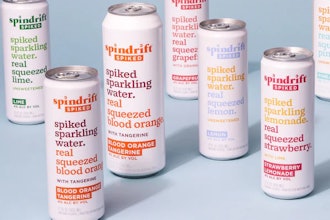

ROCKVILLE, Md., April 3, 2017 (PRNewswire) — Healthy oils and fats are trending, and the U.S. food industry might be butter—uh better—for it. For more than 30 years, there has been unrelenting advice from dietary guidelines to cut fat and saturated fat from the American diet. But such notions have soured overtime and mindsets are changing. In particular, Millennials and Generation Z consumers are the most inclined to view any type of fat not only as permissible, but as offering positive health benefits, according to Food Formulation Trends: Oils and Fats, a new report by market research firm Packaged Facts.
"This is the culinary revolution of the Instagram generation," says David Sprinkle, research director, Packaged Facts. "These young adults are unencumbered by the low-fat crazes of the 1990s and 2000s, and do not have to overcome negative perceptions about fat in general. Instead, they are able to readily embrace and seek out specific plant-based and animal-based fats for their health benefits, including fat from avocados, olive oil, eggs, butter, and omega-3 rich fish such as salmon."
Packaged Facts forecasts that over the next few years, the foods most successful with these younger consumers will be those that contain minimally processed fats and oils that are free of GMOs and may even be organic. The report found that millennial and younger consumers, in particular, seek to avoid overly processed foods and ingredients, potentially boosting the appeal of natural, unrefined oils. When more description is included, it is likely to indicate naturalness and less processing, such as "raw," "virgin," "extra-virgin," "unrefined," "expeller-pressed," and "cold-pressed" rather than "hydrogenated," "refined," "fractionated," and "solvent extracted." For example, when it comes to dairy products, the natural, full-fat versions of butter, milk, and cheese are more likely to be sought out because they are more natural and less processed.
"Butter is reemerging because it gives a stellar performance as a familiar ingredient that facilities clean and simple ingredient labels," says Sprinkle. "For Millennial and Gen Z consumers, the new normal is clean and simple labels."
In addition, Packaged Facts expects the popularity of plant-based specialty oils to benefit from increased availability of lesser known types of oil and wider, more mainstream, distribution of those already having established appeal. For all plant-based oils, continued interest in unrefined, cold or expeller-pressed oil is anticipated. These characteristics are important to Millennials when it comes to selecting fats and oils for pantry-stocking, use in home-prepared dishes, purchased prepared and processed foods, as well as restaurant meals.
About the Report
Food Formulation Trends: Oils and Fats provides a historical context regarding the perceived healthfulness and usage trends for certain, specific fats and oils and focuses on those that occupy an evolving culinary landscape.
View additional information about Food Formulation Trends: Oils and Fats, including purchase options, the abstract, table of contents, and related reports at Packaged Facts' website: https://www.packagedfacts.com/Food-Formulation-Trends-10726421/.
About Packaged Facts
Packaged Facts, a division of MarketResearch.com, publishes market intelligence on a wide range of consumer market topics, including consumer demographics and shopper insights, consumer financial products and services, consumer goods and retailing, consumer packaged goods, and pet products and services. Packaged Facts also offers a full range of custom research services.






















